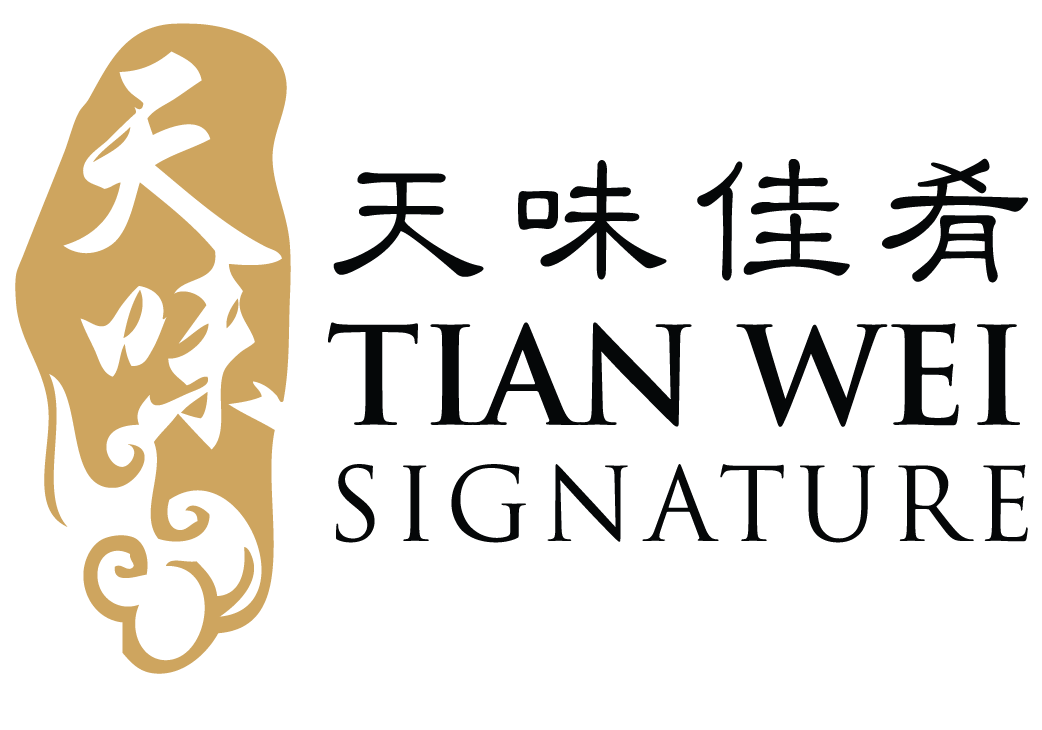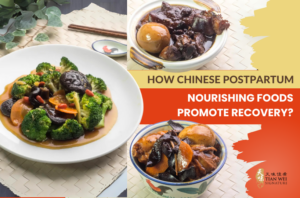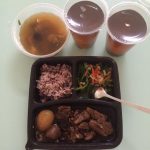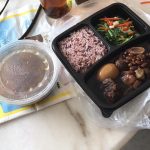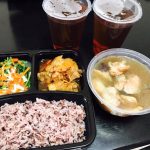81 Tagore Lane, TAG A, #01-11 Singapore 787502 ♦ Reservation : +65 6727 5599
Things Mothers Wish They’d Known About Postnatal Diet
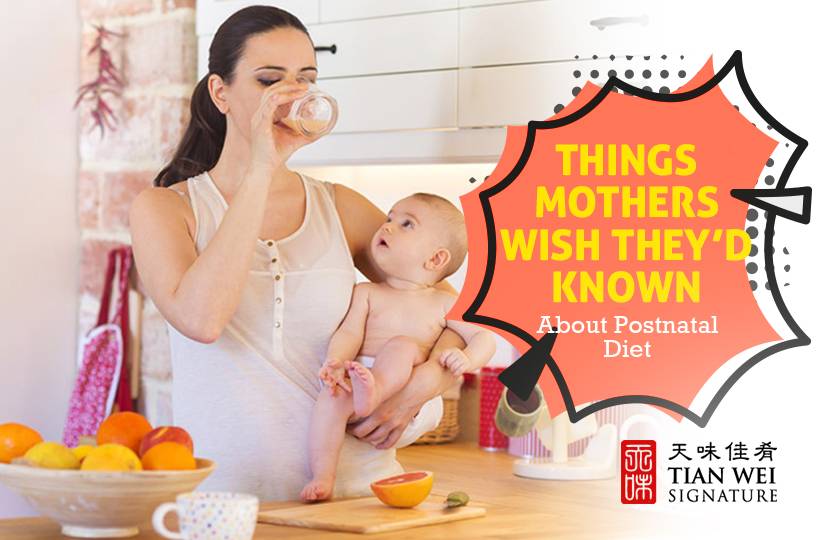
Ever wished you know something before you had gone through a certain experience? These mothers sure do! We talked to several different mothers to find out their biggest regrets when it comes to their post-pregnancy eating habit and diet. With their permission, we’ll share their mistakes in this blog so you could learn from them as well.
While there is no one postnatal diet lesson plan that can be right for all mothers, you could perhaps learn a thing or two from fellow moms. Read on to find out whether you have been doing the same mistakes and if not, you can still keep the negative effects away!
Mommy 1: Not drinking enough water
| “Your body is going to retain all the water that is not warm,” “Your body will keep growing and expanding if you drink too much water,”“As someone who always tries to keep my figure in shape, these ‘advice’ scared me to the point I significantly reduced my water intake during and after pregnancy. Not even two weeks after delivery, I learnt the hard way that those advice are all completely misleading and harmful! I was constantly thirsty from breastfeeding and my throat was dry as if not a single drop of water had passed through it in a year”. Luckily I learnt my lesson fast and immediately drank more water each day.” |
Explanation:
As a breastfeeding mother, you need a lot of water. Your body needs a lot of water. If you are exclusively breastfeeding, you become the only food and nutrition source for your baby during their first few months.
Since you are particularly feeding them in the form of liquid, you should be doing the opposite of restricting yourself of water. Plus, breastfeeding can cause one to experience extreme thirst, dehydration, and even constipation. To heal properly and speed up womb recovery, you should stay as far away from these issues as possible.
Mommy 2: Not calculating alcohol consumption
| “I ‘pump-and-dump’ed my milk after drinking and before breastfeeding, and yet my newborn still gets wined milk! The result? Neverending crying and fussiness. I felt scammed by whoever created this method.” |
Explanation:
If you have never heard of the ‘pump-and-dump’ method, it is a technique practised by new mothers where they pump their milk after consuming alcohol and throwing it away afterwards. It is not entirely wrong as that breast milk, if pumped immediately after drinking, may possibly contain a certain percentage of alcohol. However, this method is not the best option. We understand that 9 months is a long period to go without alcohol for a regular consumer. That is why some mothers tend to get carried away with alcohol after they have given birth. The good news is, you can still drink alcohol! Alcohol will automatically leave your system so save your breast milk and don’t dump them. The most crucial thing is to wait for about two to three hours after you drink until alcohol won’t be found in your milk. After that, you are free to safely breastfeed again.
Mommy 3: Drinking too much caffeine

| “I am a work-from-home mother. As far as I’m concerned, I could get back to work as soon as I feel fit. When that time came, though, my baby was not yet ready to grow out of his ‘nighttime feeding’ phase. I figured there’s no harm to keep feeding my little one at night as per usual and also work during the day. In order to stay awake and keep my brain functioning efficiently, I would regularly reach for coffee. I got what I wanted – staying awake..because my baby won’t go to sleep! On top of desperately not being able to put my son to sleep, I got even more stressed out because I was producing less milk. Coffee became my biggest enemy after that experience.” |
Explanation:
This is a much more common scenario than you’d imagine. A lot of mothers think coffee would not harm their newborns, but as shared by many others who initially thought the same, that has been proven to not be the case at all.
Regular consumption of coffee can not only disrupt your baby’s sleep, but it can also take a toll on your own postnatal recovery. If your newborn starts becoming fussy because of caffeine, they may end up not nursing well or as frequent as they should be. Over time, this issue can cause a decrease in your breast milk supply. Not producing enough milk, of course, can complicate your breastfeeding experience.
Mommy 4: Cutting down carb intake
| “I have been following a low-carb diet way before I was pregnant and had my baby. Because I have eaten ‘for two’ the whole time I was pregnant, I was excited to get back to my regular diet after I’ve given birth. Boy, was I wrong to do that. I felt physically-drained even when I just rested all day. Several searches and a professional consultation later, I found out that my body lacked energy to produce breast milk and feed my baby.” |
Explanation:
Sure, counting calories and staying low on the carbs may be helpful to help you lose weight. But what about your energy? Carbohydrates are the main fuel of energy. This is why it is crucial to learn about the recommended postnatal nutrition because if you cut diwb certain nutrients completely, regaining strength and energy is going to be tough.
Plus, you should also note that the weight you put on during pregnancy, despite not leaving immediately afterwards, will mostly go away on its own. You can plan a diet that would not cause a slowdown in the natural weight loss process, but do not be too strict on yourself by not eating carbs. A lot of mothers get exhausted from recovery and breastfeeding, so not giving your body ample carbs is unreasonable.
Mommy 5: Eating only for the baby

| “Planning my confinement diet was exciting for me. Even when I was merely 12 weeks pregnant, I already started listing foods that would help in the production and circulation of breastmilk. After birth, I continued eating mainly salmon, chicken, nuts, and vegetables regularly and very little carbs. OH and not to mention, ginger, because it would help me produce breast milk. Gosh, I must’ve included ginger in every food AND drink! What happened? I felt lethargic and was constantly exhausted. I could only wake up to feed my baby and the rest of the time I would spend sleeping. As a first-time mom, I thought this was normal. When I talked about it with my friends, none of them experienced the same thing. As it turned out, all of them followed a regular diet. That’s when I learnt that all I did was overexerting my body without fuelling my energy. I wish I had learnt this way sooner. I definitely could have tended to my baby much better had I had more energy.” |
Explanation:
Great, your baby gets everything they need. But you are forgetting another person who is in an equally critical condition – yourself. Your body has needs too, no matter how much you try to deny it. Eat more carbs to regain your strength. Crave some snacks? Go for it. If you are worried about calories, create your own sweet snacks.
Ginger is undoubtedly great for new moms, but consuming too much ginger can only do you bad than good. Since most moms would stay out of cold air during the confinement period, adding too many ingredients with heaty properties can overly heat up your body and cause thirst and excessive sweating, especially since you would possibly be breastfeeding. Cutting corners is acceptable, but not at the expense of your childbirth recovery.
Mommy 6: Not taking into account the nutrients needed
| “My biggest mistake about my diet after giving birth is that I couldn’t care less about my food. I ate whatever was available in sight. I remember being addicted to using delivery app during those days and I ended up getting fast food several times. I could almost cry thinking about how poorly I treated my healing body back then.” |
Explanation:
Neglecting the body’s needs is a common regret not only among new mothers, but almost everyone from latter age groups. Naturally, living in the moment seems like the most satisfying thing to do…at the moment.
What you should be doing, however, is to always look ahead. Think for the sake of your body as how it looks highly depends on your eating habits. You can have all the tasty food you want, but eat what your body can afford to take in and digest. Look up your ideal postnatal diet for mother and choose the ones you could follow without much trouble.
The point is when it comes to post pregnancy diet, neither being too rigid nor being too lenient will do good for you or your baby. Find a middle ground where you can compromise on what you like and still provide enough nutrients for your newborn. Talk to a certified nutritionist and they will tell you the same thing.
If you feel like leaving everything to the hands of the professionals, you can opt for confinement meals delivery instead. This way, you can rest assured that you will have a wide variety of daily meals and at the same time obtain plenty of nutrients.
